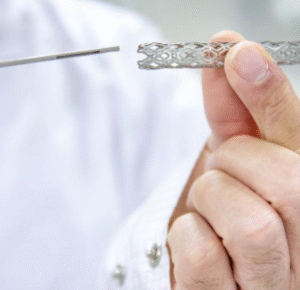
Visiting the dentist regularly keeps your smile healthy and strong. Sometimes, though, we might overlook the signs that it’s time to see a dentist. Ignoring these signs can lead to bigger problems down the line. A Richardson, TX dentist can help you maintain your oral health by addressing issues early. Here are five signs that suggest it’s time to book an appointment. First, if you experience persistent tooth pain, this could signal a cavity or infection. Second, bleeding gums when you brush or floss may indicate gum disease. Third, bad breath that won’t go away might point to an underlying dental issue. Fourth, if you have loose or shifting teeth, it’s essential to get them checked right away. Lastly, if you notice sores or spots in your mouth that don’t heal, a dental visit is crucial. Recognizing these signs ensures timely care and keeps your mouth in top shape.
Persistent Tooth Pain
Tooth pain can be more than just a minor annoyance. When pain lingers, it often indicates an issue needing professional attention. Cavities, infections, or even tooth fractures can cause this discomfort. According to the National Institute of Dental and Craniofacial Research, untreated cavities are one of the most common dental issues. Addressing persistent pain early prevents further damage and restores comfort.
Bleeding Gums
Bleeding gums, especially while brushing or flossing, shouldn’t be ignored. This can be an early sign of gum disease, which progresses if left untreated. Gum disease affects the tissues supporting your teeth, possibly leading to tooth loss. The Centers for Disease Control and Prevention highlights how common and preventable gum disease is. Regular dental visits catch these signs early, ensuring better gum health.
Persistent Bad Breath
Halitosis, or chronic bad breath, can embarrass and indicate dental issues. Poor oral hygiene, infections, or dry mouth could be culprits behind persistent bad breath. A dentist evaluates and treats the cause of halitosis, improving both your oral health and confidence.
Loose or Shifting Teeth
Adult teeth should remain stable. If you notice movement or changes in your teeth’s position, it often signals bone loss or gum disease. Teeth may loosen due to injury, infection, or even grinding. A dental professional assesses the cause and recommends the appropriate treatment to prevent further complications.
Sores or Spots in the Mouth
Sores or spots that don’t heal in a couple of weeks need evaluation. They might be benign but can also indicate infections or more serious conditions like oral cancer. Early detection through routine dental check-ups ensures timely treatment. Monitoring changes in your oral tissues during regular visits is a preventive measure that protects your health.
Comparison Table: Common Dental Issues and Signs
| Dental Issue | Common Signs | Recommended Action |
| Cavity | Pain, sensitivity | Dental filling |
| Gum Disease | Bleeding, swelling | Professional cleaning |
| Tooth Infection | Severe pain, swelling | Root canal therapy |
| Oral Cancer | Persistent sores, spots | Biopsy and treatment |
Regular Dental Visits: A Wise Choice
Routine dental visits do more than address immediate concerns. They offer long-term benefits by maintaining overall oral health. Dentists can spot potential problems before they worsen, saving you from discomfort and extensive treatments. The American Dental Association recommends regular cleanings and check-ups every six months. This proactive approach keeps your smile healthy and vibrant.
Each sign mentioned is a call to action. Don’t wait for discomfort or visible changes to prompt a dental visit. Regular check-ups and paying attention to these signs can prevent serious issues and maintain your oral health. Consider scheduling an appointment with a trusted dental professional if any of these signs sound familiar. A small step towards regular dental care provides peace of mind and a healthy smile.



